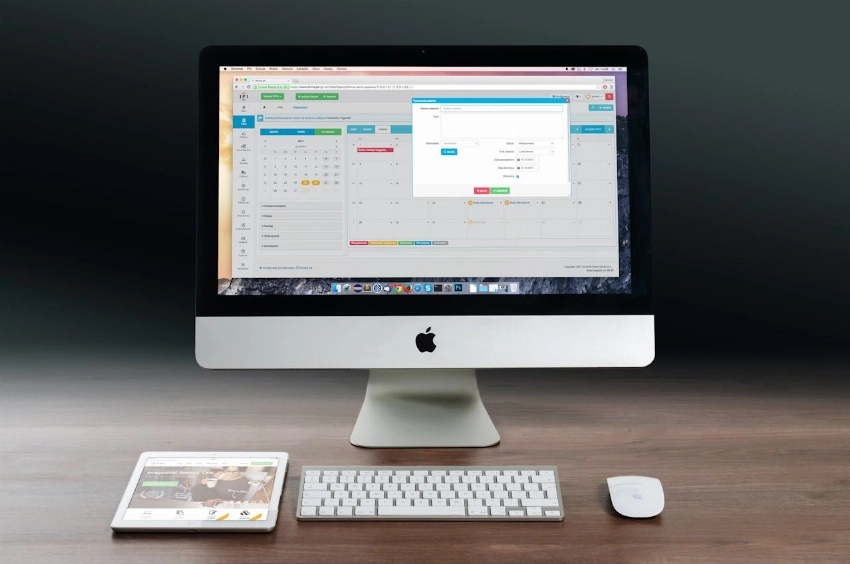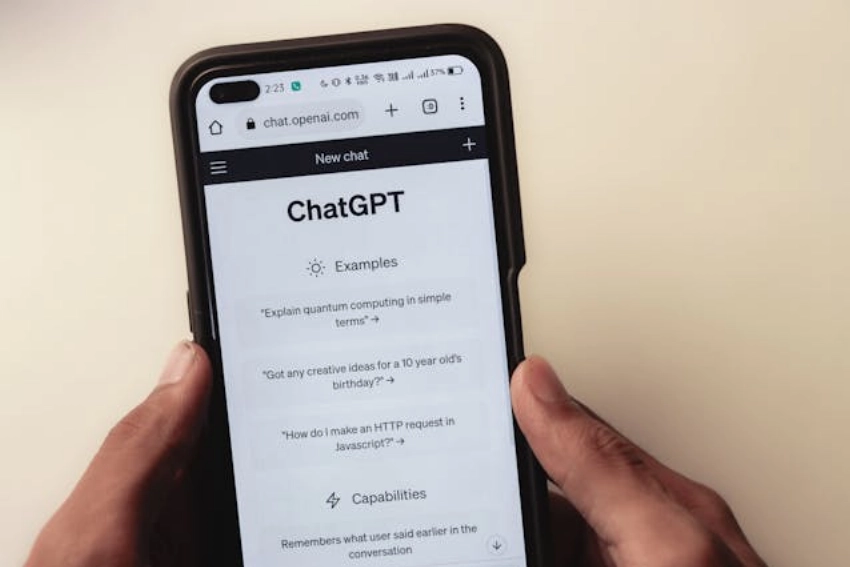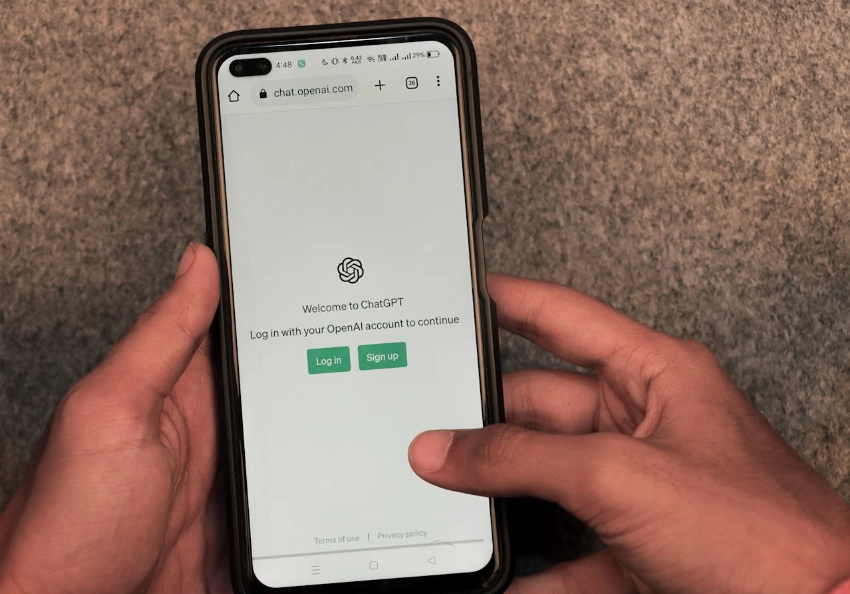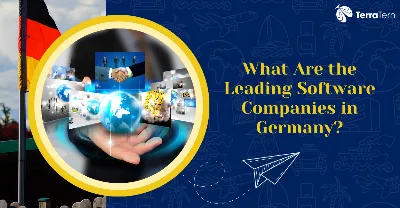Key Highlights
- Which Are the Top 10 Software Companies in Germany?
- Why Is Germany a Global Leader in Software Development? Experts Insights 2025
- What Services Do Software Companies in Germany Offer in 2025? Latest Update
- How Much Do Software Development Services Cost in Germany in 2025?
- What Factors Influence Software Development Costs in Germany?
- How Do German Software Development Rates Compare Globally in 2025?
- What Are the Benefits of Hiring Software Companies in Germany in 2025?
- Which Industries Do German Software Companies Serve in 2025?
- How Do You Choose the Right Software Company in Germany in 2025?
- What Are the Latest Trends in Germany's Software Industry in 2025?
- How Can International Businesses Work with German Software Companies in 2025?
- What Career Opportunities Exist in German Software Companies in 2025?
- Germany's Software Industry Boom: Key Stats for 2025
- How TerraTern Can Assist with German Visa and Immigration
- Conclusion
Germany's software industry remains one of Europe's most dynamic tech sectors in 2025, with world-class software companies in Germany that have revolutionised the digital landscape. From giant corporations to cutting-edge software development companies in Germany, the tech ecosystem in the country drives forward more than EUR 178 billion in revenue per year.
Which Are the Top 10 Software Companies in Germany?

The top 10 software companies in Germany account for a value of 178 billion EUR annually in the IT market alone, and the companies range from enterprise resource planning to healthcare technology to custom software development companies in Germany with global clientele.
Leading Enterprise Software Giants in Germany in 2025
The leading software companies in Germany are as follows.
|
Company |
Location |
Founded |
Employees |
2025 Revenue |
Specialization |
Key Products/Services |
Notable 2025 Achievements |
|
SAP SE |
Walldorf |
1972 |
106,000+ |
€9.03B (Q2), cloud +24% YoY |
ERP, cloud solutions, business process management |
S/4HANA, Business Data Cloud, AI assistant Joule |
Partnerships with Palantir, Accenture, Alibaba; $253.56B market cap; 91,000+ cloud customers |
|
Siemens AG |
Munich/Berlin |
1847 |
320,000 |
€1.54B software (Q3) |
Industrial automation, IoT, AI manufacturing |
Smart Infrastructure, Digital Factory, Industry 4.0 solutions |
3-7% revenue growth expected; COâ‚‚-neutral at 400+ locations; AI integration in all products by 2025 |
|
Software AG |
Darmstadt |
1969 |
4,700 |
Digital ARR +21% |
Business process management, API integration |
IoT platforms, iPaaS, API Management, Process Mining |
94% bookings from SaaS; 91% recurring revenue; successful cloud transformation |
|
Nemetschek SE |
Munich |
1963 |
3,000+ |
€290M (Q2), +27.4% YoY |
Construction software, CAD/BIM, and entertainment |
Planning & Design, Build & Construct, Media solutions |
ARR surpassed €1B; subscription revenue +83.6%; raised 2025 outlook to 20-22% growth |
|
CompuGroup Medical |
Koblenz |
1984 |
8,000 |
€286.2 (Q1), 76% recurring |
Healthcare IT, EHR, practice management |
CGM one, CGM CDA (AI assistant), CGM STELLA pharmacy software |
Launched AI-based documentation assistants; CGM TI-Messenger; cloud-based solutions expansion |
Top Software Development Companies and Agencies in Germany 2025
The Top Software Development Companies are as follows
|
Company |
Location |
Founded |
Team Size |
Project Portfolio |
Technology Stack |
Service Offerings |
Client Industries |
Notable Projects |
|
Limeup |
Germany |
2013 (10+ years) |
75+ in-house professionals |
150+ successful projects |
JavaScript, TypeScript, React, Node.js, AWS, React Native |
Custom software, mobile apps, web platforms, enterprise solutions, Agile methodology |
Healthcare, real estate, fintech, e-commerce |
Healthcare software (€700K grant); tokenization platforms for German real estate; UK fintech trading solutions; Vodafone projects |
|
Impltech |
Berlin |
2017 |
Senior devs (10+ years exp) |
100+ projects, 80+ international clients |
Modern frameworks, cloud technologies, full-stack |
Custom software, CRM systems, web/mobile dev, UI/UX design, MVP, AI solutions, legacy modernisation |
Fintech, real estate, healthcare, and pharmaceutical |
Zinshaus (real estate data management); Raccoon.recovery (USA healthcare); Refuture (property tokenisation) |
|
Makers' Den |
Berlin |
2017 |
Founded by 2 ReactJS freelancers |
Multiple successful projects |
JavaScript, TypeScript, AWS, React Native, modern JS frameworks |
React.js development, mobile solutions, headless e-commerce (Shopify), custom applications |
E-commerce, various industries |
Headless e-commerce platforms; scalable software solutions; long-term partnerships |
|
ProductDock AG |
Berlin |
2021 (12 years prior as Codecentric) |
120+ engineers, designers, PMs |
Engineering hubs: Lisbon, Novi Sad, Banja Luka, Doboj |
JavaScript, Angular, React, Node.js, TypeScript, Java, Python, C#, Kotlin, Golang, Docker, AWS, Kubernetes, GCP, Azure, Swift, Flutter |
Software modernisation, cloud solutions, AI implementation, product development, system integration, A11y, QA testing |
Manufacturing, e-commerce, enterprise |
Adevinta projects; KAMAX solutions; sustainable product development |
|
First Line Software |
Berlin (HQ: Cambridge, MA) |
2010 |
500+ global staff |
Multiple European locations |
AI/ML, cloud platforms, big data, IoT, enterprise content management |
Managed AI Services (MAIS), Digital Experience Platforms (DXP), healthcare IT, big data engineering, IoT solutions |
Healthcare, real estate, data-rich industries |
AI implementation partnerships; healthcare clinical systems; medical data management; enterprise software |
Also Read: Software Engineer Jobs in Germany: Latest Guide
Why Is Germany a Global Leader in Software Development? Experts Insights 2025
Software companies in Germany make the country a technology superpower in Europe, with an IT market size of EUR178 billion annually and a forecasted USD33.3 billion market over 2025 - 2029 at a CAGR of 4.2%.
1. Germany Technology Leadership
-
Industry 4.0 Pioneers: Germany initiated the Industry 4.0 programme in 2010 as part of their High-Tech Strategy 2020, introducing the first comprehensive framework for integrating IoT and intelligent manufacturing with the rest of the world through cyber-physical systems.
-
Market Scale: Germany Industry 4.0 market worth USD 12.10 Billion in 2024, which is expected to reach USD 35.51 Billion by 2033 with a 12.7% CAGR.
2. Achievement of Engineering Greatness throughout history.
-
Fourth Industrial Revolution: Industry 4.0 is the fourth industrial revolution after the mechanisation (steam power), mass production (Henry Ford), and digital revolution (PLCs, ERP).
-
Manufacturing Heritage Germany, with over 175 years of industrial engineering expertise (Siemens founded in 1847), has the software base for manufacturing solutions.
3. Trend Technology Leadership 2025
-
AI and Machine Learning: 40% of German companies are working with AI solutions, Siemens and Bosch have optimised manufacturing processes with AI-driven automated processes
-
IoT and Industry 4.0: The German IoT market is projected to grow by 25% per annum through 2027, and BMW plans to use IoT to operate its factories more intelligently.
What Services Do Software Companies in Germany Offer in 2025? Latest Update

Software companies in Germany offer all-round services, including customised development, enterprise solutions, cloud integration, A.I./ML integration, IoT implementation, and cybersecurity services for various industries, such as healthcare, manufacturing, and beyond.
|
Service Category |
Description |
Key Technologies |
Primary Applications |
|
Custom Software Development |
Bespoke solutions tailored to unique business requirements |
JavaScript, TypeScript, Python, Java, C#, Kotlin |
Business process automation, digital transformation, legacy modernisation |
|
Enterprise Solutions |
ERP, CRM, supply chain, business intelligence systems |
SAP S/4HANA, Business Technology Platform, cloud ERP |
Finance, HR, procurement, sales, supply chain management |
|
Mobile App Development |
iOS, Android, cross-platform applications |
Swift, Flutter, React Native, Kotlin |
Customer engagement, field operations, and employee productivity |
|
Cloud Computing Services |
Cloud migration, infrastructure, and platform services |
AWS, Azure, Google Cloud Platform, Docker, Kubernetes |
Scalability, flexibility, cost optimisation, and disaster recovery |
|
AI/ML Integration |
Artificial intelligence, machine learning, predictive analytics |
TensorFlow, PyTorch, neural networks, deep learning |
Process optimisation, predictive maintenance, decision automation |
|
IoT Solutions |
Connected devices, smart factory, Industry 4.0 |
Sensor networks, edge computing, real-time data processing |
Manufacturing optimisation, supply chain visibility, asset tracking |
|
Cybersecurity Services |
Security audits, threat detection, and GDPR compliance |
AI-powered threat detection, encryption, and security monitoring |
Data protection, regulatory compliance, risk management |
|
Digital Transformation |
Business process digitisation, automation |
RPA, process mining, workflow automation |
Operational efficiency, competitive advantage, innovation |
How Do Custom Software Development Services Work in Germany?
Software development services work is as follows:
|
Phase |
Activities |
Deliverables |
Timeline |
Client Involvement |
|
1. Discovery & Analysis |
Requirements gathering, stakeholder interviews, feasibility studies, and SWOT analysis |
Project charter, requirements document, technical specifications |
1-3 weeks |
High-defining goals and workflows |
|
2. Planning & Design |
Wireframes, system architecture, database design, UI/UX mockups, project roadmap |
Design documents, prototypes, development plan, timelines |
2-4 weeks |
High approval of designs and architecture |
|
3. Agile Development |
Coding in sprints, version control, code reviews, and continuous integration |
Working software increments, sprint deliverables |
8-24 weeks |
Moderate - sprint reviews and feedback |
|
4. Testing & QA |
Functionality testing, performance testing, security audits, and user acceptance testing |
Test reports, bug fixes, and quality certification |
2-4 weeks |
Moderate - UAT participation |
|
5. Deployment & Release |
Production deployment, data migration, system configuration, and go-live support |
Live system, deployment documentation, training materials |
1-2 weeks |
High - final approval and training |
|
6. Maintenance & Support |
Bug fixes, updates, performance monitoring, feature enhancements |
Support tickets, maintenance reports, and system updates |
Ongoing |
Low - issue reporting and feedback |
What Enterprise Solutions Do German Software Giants Provide?
German software giants deliver as follows:
1. Enterprise Solutions Include
-
ERP Systems: Integrated suites that unify finance, procurement, supply chain, sales, HR, and analytics to create a single source of truth and real-time control across the enterprise.
-
CRM Platforms: Sales, service, and marketing solutions that manage customer lifecycles, pipeline visibility, and omnichannel engagement for B2B/B2C use cases.
2. Market Size, Leadership, and Adoption
-
Germany’s Enterprise Software market is projected at US$13.57B in 2025, with Europe at US$70.6B, reflecting robust B2B demand for digital transformation.
-
ERP remains the largest German segment (33.76% share in 2024), while CRM is the fastest-growing through 2030, underscoring front- and back-office convergence.
3. SAP SE: ERP-led Enterprise Suite
-
Core Offerings: SAP S/4HANA Cloud for ERP; finance, supply chain, sales, procurement, and HR on SAP Business Technology Platform with embedded AI and automation.
-
2025 Recognition: Gartner Leader for Cloud ERP; SAP highlights connected applications, AI agents, and contextualised data across product and service-centric enterprises.
4. Siemens (Digital Industries)
-
Core Offerings: MES for shop-floor execution, PLM/EDA for product lifecycle, industrial IoT platforms, and automation/controls for Industry 4.0 plants.
-
2025 Performance: DI software faced tough comps after prior-year mega license deals; outlook confirmed with strong orders and resilient automation margins.
5. Software AG
-
Core Offerings: webMethods iPaaS for application/data integration, API management for secure ecosystems, IoT analytics, and process mining for operational excellence.
-
2025 Momentum: Digital Business ARR +21% with 94% of bookings from subscription/SaaS and 91% recurring revenue, reflecting cloud-first transformation.
Also Read: Software Developer Salary Germany: Roles, Pay & More
How Much Do Software Development Services Cost in Germany in 2025?
Software development services in Germany typically cost between €40 €150 per hour for individual developers, while complete projects range from €30,000 for basic solutions to €280,000+ for complex enterprise applications.
Hourly Rate Breakdown by Experience Level
|
Developer Level |
Hourly Rate (€) |
Monthly Salary (€) |
Typical Responsibilities |
|
Junior Developers (1-3 years) |
€40 - €60 |
€3,000 - €4,500 |
Basic coding, bug fixes, junior-level tasks |
|
Mid-Level Developers (3-5 years) |
€60 - €90 |
€4,500 - €6,500 |
Feature development, code reviews, moderate complexity |
|
Senior Developers (5+ years) |
€90 - €150 |
€6,500 - €10,000 |
Architecture design, team leadership, complex systems |
|
Freelance Specialists |
€70 - €120 |
Variable |
Project-based work, specialised expertise |
|
Outsourcing Companies |
€50 - €100 |
Project-based |
Full-service teams with project management |
Regional Cost Variations Within Germany in 2025
|
City/Region |
Average Hourly Rate (€) |
Monthly Salary Range (€) |
Key Characteristics |
|
Munich |
€80 - €150 |
€7,000 - €10,000+ |
Highest rates; major tech hub with automotive and enterprise focus |
|
Berlin |
€70 - €130 |
€6,000 - €9,000 |
Startup-friendly; diverse tech ecosystem with moderate-to-high rates |
|
Frankfurt |
€75 - €140 |
€6,500 - €9,500 |
Financial tech centre; premium rates for fintech expertise |
|
Hamburg |
€65 - €120 |
€5,500 - €8,500 |
Growing tech scene; slightly lower than top-tier cities |
|
Smaller Cities/Rural |
€50 - €90 |
€4,500 - €7,000 |
More cost-effective; limited but quality talent pool |
What Factors Influence Software Development Costs in Germany?
Factors influencing software development costs in Germany:
-
Developer Expertise and Specialisation: Junior to senior rates vary widely (about €40–€150/hr), with premiums for AI/ML, fintech, or blockchain skills due to scarce talent and higher impact roles.
-
Technology Stack Complexity: Advanced stacks (AI/ML, blockchain, IoT, complex cloud) raise costs for rare expertise, infrastructure, and integration versus conventional open-source frameworks and standard web/mobile stacks.
-
Project Duration and Scope: Tight deadlines increase costs via added resources and overtime, while longer timelines distribute spend; complex, feature-rich builds push budgets higher than lean MVPs.
-
Team Size and Engagement Model: Larger multi-role teams cost more; in-house adds salaries, benefits, and infra, while vetted outsourcing/freelancers reduce overhead but may trade off control.
-
Location within Germany: Munich/Frankfurt command higher rates than Berlin and notably more than smaller cities, reflecting living costs and domain premiums (e.g., fintech, automotive).
-
Additional Expenses: Budget for licenses, cloud/hosting, PM and QA overhead, compliance (e.g., GDPR/financial regs), and post-launch maintenance of roughly 15–20% annually.
How Do German Software Development Rates Compare Globally in 2025?
German software development rates are among the highest globally, with typical ranges around €60–€120 per hour (broader market €40–€150), positioning Germany near the UK and below top U.S. agency rates in many segments.
|
Region/Hub |
Typical Hourly Rate (EUR) |
Typical Hourly Rate (USD) |
Relative to Germany |
Quality-to-Cost Notes |
|
Germany |
€60–€120 (market span €40–€150) |
~$65–$130 |
Baseline |
Enterprise quality, strong compliance and domain expertise in automotive, Industry 4.0, and fintech |
|
USA |
€90–€180 |
~$100–$200 |
~20%–60% higher |
Top-tier product/design and scaling expertise; premium agencies and onshore teams drive higher rates |
|
UK |
€75–€150 |
~$85–$165 |
~0%–20% higher |
Mature market with strong governance and finance-sector specialisation |
|
Eastern Europe (Poland/Ukraine/Romania) |
€28–€55 |
~$30–$60 |
~40%–60% lower |
Solid CS education, good English, attractive nearshore value for EU projects |
|
India |
€18–€37 |
~$20–$40 |
~60%–80% lower |
Very cost-effective with massive talent pools; quality varies by vendor and oversight model |
What Are the Benefits of Hiring Software Companies in Germany in 2025?

Hiring software companies in Germany are as follows:
-
Access to world‑class engineering talent with deep domain strengths in automotive, industrial IoT (Industry 4.0), and fintech, enabling precise architectures and resilient systems from leading software companies
-
High-quality and reliability standards via structured PM, comprehensive QA, and documentation practices at software development companies in Germany, helping cut rework and total cost of ownership over the lifecycle.
-
GDPR‑first data protection culture that aligns and builds to EU privacy norms and German expectations, reducing compliance risk for international clients without slowing product delivery.
-
Innovation ecosystem and research links that bring modern AI/ML, cloud, and Industry 4.0 methods into production faster, translating German engineering rigour into measurable software outcomes.
-
Strategic EU location, strong IP protection, and business stability that improve collaboration, contract enforceability, and continuity for global programs led by software companies.
-
Justified premium versus Eastern Europe and India through superior quality‑to‑cost ratio, with maintainability and risk reduction valued by enterprises comparing the software companies in Germany and other hubs.
Why Is German Engineering Excellence Valuable for Software Projects?
German engineering excellence delivers reliable, high-quality software with rigorous processes and documentation,
-
Precision culture and quality mindset translate into thorough requirements, careful architecture, and exhaustive QA, producing stable, maintainable systems from software companies.
-
Documented processes and clear acceptance criteria reduce rework and lifecycle costs, a hallmark of leading software development companies in Germany serving enterprise buyers.
-
Deep domain expertise in automotive, industrial IoT/Industry 4.0, and fintech enables robust integrations and compliance‑ready designs.
-
Senior‑heavy teams with rigorous code reviews and test automation deliver measurable quality indicators like fewer post‑release defects and faster MTTR in production.
-
Professionalism, punctuality, and strong English communication reduce coordination overhead on cross‑border projects, improving throughput and predictability.
-
Enterprise‑grade governance and security practices (e.g., ISO‑aligned workflows) align with global procurement standards, supporting long‑term partnerships.
How Does GDPR Compliance Benefit International Clients?
Germany’s strict GDPR/BDSG regime gives international clients tangible risk reduction through privacy‑by‑design and strong security practices.
-
Germany enforces GDPR rigorously alongside national laws like BDSG and sector security norms, helping international clients, including software companies, meet EU data protection obligations.
-
Privacy‑by‑design practices (data minimisation, DPIAs, consent flows) lower regulatory exposure and audit friction for global rollouts delivered by software development companies in Germany.
-
Security baselines—encryption, access controls, logging, and breach response—reduce incident likelihood and impact, protecting brand and customer trust.
-
Compliance documentation (DPAs, records of processing, vendor due diligence) streamlines procurement and speeds go‑lives for multinational programs.
-
EU data residency and vetted cloud configurations facilitate lawful cross‑border processing with standard contractual clauses where needed.
-
Proven track records with regulated industries (finance, automotive, healthcare) indicate lower risk and smoother audits, which is a key reason enterprises shortlist the top 10 software companies in Germany.
Also Read: Average Salary in Germany for a Software Engineer: Latest Guide
Which Industries Do German Software Companies Serve in 2025?
Industries that German software companies serve are as follows:
-
Automotive and Mobility: connected vehicle platforms, ADAS/infotainment, OTA updates, and vehicle data analytics by software companies in Germany, with examples including Vector Informatik and Volkswagen Group IT Services.
-
Manufacturing and Industry 4.0: IIoT, predictive maintenance, digital twins, MES/SCADA modernisation, and edge analytics from software development companies in Germany serving factory automation leaders.
-
Finance and Fintech: core banking integrations, payments and PSD2‑ready APIs, KYC/AML orchestration, and risk/compliance tooling commonly delivered by software companies in Germany for regulated institutions.
-
Healthcare and Medtech: hospital information systems, telemedicine platforms, e‑prescription and remote monitoring from providers like CompuGroup Medical and Bosch Software Innovations in Germany.
-
E‑commerce, Retail, and Logistics: omnichannel commerce, marketplace engines, personalisation, WMS/TMS, and route optimisation for enterprise retailers and carriers led.
How are they driving automotive innovation?
The driving automotive innovations are as follows:
-
End‑to‑end connected car stacks with secure OTA updates, telematics, and data pipelines that improve feature delivery velocity and reliability at German OEMs and Tier‑1s.
-
EV platform software, including battery and charging orchestration, energy management, and fleet analytics, is built by a specialised team.
-
In vehicle infotainment, HMI, and seamless mobile integration that elevate UX while meeting stringent automotive software quality benchmarks.
-
Cybersecurity-minded architectures with secure key management, hardened comms, and logging to protect connected fleets at scale.
-
Tooling and integrations for OEM IT services and suppliers that accelerate AUTOSAR‑aligned development and continuous delivery in automotive programs.
What healthcare software solutions do they provide?
The healthcare software solutions they provide are as follows:
-
Hospital information systems, EHRs, and clinical workflows that streamline admissions, coding, and discharge while improving data quality and audit readiness
-
Telemedicine and remote patient monitoring platforms with secure video, e‑prescriptions, and device data ingestion for chronic care and post‑acute scenarios.
-
Practice management and revenue cycle tools that optimise scheduling, billing, claims, and interoperability for clinics and group practices.
-
Privacy-by-design aligns with GDPR and German data protection norms, including encryption, access controls, and breach response, to reduce regulatory risk for international clients.
-
Integrations of medical devices and digital therapeutics with safe software lifecycle practices and robust logging for clinical audit trails.
-
Sector exemplars such as CompuGroup Medical and Bosch Software Innovations showcase the depth of German medtech among the top 10 software companies in Germany.
How Do You Choose the Right Software Company in Germany in 2025?

The right software companies in Germany are as follows:
-
Define requirements and constraints upfront: business goals, scope, KPIs, regulatory needs (e.g., GDPR), timeline, budget, and risk tolerance. Translate these into a vendor scorecard to anchor decision-making.
-
Shortlist based on domain fit and similar case studies, prioritising teams that have shipped comparable scale and complexity; mid‑sized firms often balance flexibility and governance well for Germany‑based projects.
-
Validate delivery capability: ask about agile process, estimation, change control, QA automation, tooling, and release cadence; insist on measurable delivery artefacts and status reporting practices.
-
Check the security and compliance posture: ISO 27001 practices, GDPR controls, DPAs, data residency, access management, and incident response; ensure alignment with EU norms standards for German engagements.
-
Assess communication and cultural fit: English proficiency, meeting cadence, time‑zone overlap, escalation paths, and stakeholder transparency—key success drivers in Germany’s process‑oriented work culture.
What Questions Should You Ask Before Hiring?
The questions you should ask before hiring are as follows:
-
Experience and Fit: What similar projects have you delivered in our industry? Can we review detailed case studies and speak with client references? What seniority mix will be staffed, and why does it suit our scope?.
-
Process and Delivery: Which methodology do you use (e.g., agile); how do you handle estimation, change requests, and acceptance criteria; what QA automation and definition‑of‑done guardrails do you enforce?.
-
Security and Compliance: How do you implement GDPR, data minimisation, and access controls? Do you operate an ISO 27001‑aligned ISMS? How are incidents logged, escalated, and reported to clients?.
-
Communication and Governance: Who is the dedicated PM; what are reporting cadences and tools; how do you manage stakeholder alignment, risks, and escalations across time zones and languages?.
How Important Is Portfolio Review in the Selection Process?
Portfolio Review in the Selection Process is as follows:
-
Portfolio Relevance is Critical: Prioritise case studies that mirror your domain, scale, and constraints, with clear problem statements, approach, and quantified outcomes to validate fit.
-
Evaluate Depth over Gloss: Look for architecture decisions, tech stack rationale, QA strategy, performance results, and maintainability signals rather than only UI snapshots.
-
Verify Claims: Request references, production URLs or demos where feasible, and confirm the team members who proposed actually worked on highlighted projects to reduce representation risk.
-
Check Regulated‑Industry Readiness: For finance, healthcare, or automotive, confirm compliance patterns and audit artefacts to ensure German/EU regulatory expectations are already operationalised.
-
Use a Scoring Rubric: Rate each portfolio on complexity match, technology match, measurable results, and team role clarity to enable objective selection decisions.
-
Watch for Red Flags: Generic or outdated case studies, “NDA” without sanitised detail, and inconsistent narratives between sales and delivery signal higher delivery risk.
Also Read: Software Testing Jobs in Germany: Salary & Benefits
What Are the Latest Trends in Germany's Software Industry in 2025?
The Latest Trends in Germany’s Software Industry are as follows:
-
AI and machine learning scale from pilots to production for predictive maintenance, NLP, and computer vision, with a growing focus on MLOps, model governance, and measurable ROI across software development companies.
-
Cloud computing and SaaS continue to grow rapidly through hybrid and multi‑cloud patterns (AWS, Azure, GCP, plus IaaS from EU providers like IONOS), driven by modernisation and time‑to‑market goals in the software companies in Germany.
-
Cybersecurity advances prioritise zero‑trust, secure SDLC, and audit‑ready controls for GDPR‑heavy sectors (finance, healthcare, automotive), embedding security and compliance in delivery workflows.
-
IoT and Industry 4.0 mature with edge analytics, digital twins, and data platforms that connect factory and fleet operations to enterprise systems for real‑time decisions.
How Is Artificial Intelligence Transforming German Software Companies?
Artificial intelligence is transforming German software companies is as follows:
-
AI is embedded into products and platforms—recommendation engines, anomaly detection, and computer vision—improving uptime, personalisation, and safety in automotive, manufacturing, and fintech use cases.
-
MLOps and responsible AI practices standardise data pipelines, model lifecycle management, and bias/robustness checks, aligning with EU privacy and governance expectations in software development companies in Germany.
-
Talent scarcity in advanced AI/ML drives premium rates for senior specialists who can productionize models and integrate them with secure, compliant data platforms.
-
Automotive and Industry 4.0 lead with predictive maintenance, ADAS data pipelines, and quality inspection at the edge, converting engineering know‑how into validated industrial AI patterns.
-
Fintech applies AI to fraud detection and risk scoring, balancing innovation with strict controls for auditability and regulatory reviews across German enterprise stacks.
What Role Does Cloud Computing Play in Germany’s Software Market?
Cloud computing's role in Germany’s software market is as follows:
-
Cloud underpins modernisation with hybrid/multi‑cloud architectures spanning AWS, Azure, Google Cloud, and EU providers like IONOS to balance capability with data sovereignty needs in software companies in Germany.
-
Cloud‑native development (containers, microservices, IaC, CI/CD) accelerates release cadence and reliability while enabling platform engineering and internal developer portals.
-
Data sovereignty and compliance (GDPR, BDSG, sectoral norms) shape landing zones, encryption, access controls, and residency choices, influencing vendor selection in the top 10 software companies.
-
SaaS growth continues in ERP/CRM/analytics, with buyers demanding clear shared‑responsibility models, DPAs, and auditable controls to satisfy internal and external reviews.
How Can International Businesses Work with German Software Companies in 2025?

International businesses that work with German software companies are as follows:
-
Initiate Partnering with a Structured RFP: Share scope, KPIs, compliance needs, budget, and timeline; request a proposal pack (solution outline, estimates, team mix, delivery plan) and score vendors against an evaluation matrix.
-
Contract for Outcomes and Resilience: Define SLAs, acceptance criteria, change control, and warranty; align on GDPR data processing, residency, and security baselines standard in German engagements.
-
Manage Remote Collaboration Intentionally: Weekly checkpoints, risk logs, decision registers, and stakeholder maps; ensure timezone alignment and escalation paths to maintain predictable throughput.
-
Run a Paid Pilot Before Full Award: Timeboxed scope, measurable exit criteria, and go/no‑go gates to validate fit, velocity, and quality in a low‑risk setting.
What Are the Legal Considerations for International Contracts?
The legal considerations for international contracts are as follows:
-
Governing Law and Jurisdiction: Specify German law, forum (e.g., courts or arbitration), and dispute resolution steps to ensure predictability and enforceability for cross‑border engagements.
-
IP Ownership and Licensing: Define ownership of foreground IP, permitted use of background IP, OSS compliance, and code escrow to protect business continuity and commercialisation paths.
-
Data Protection Agreements: Include GDPR‑aligned DPAs, lawful transfer mechanisms (e.g., SCCs), breach notification timelines, and data residency requirements for regulated workloads.
-
Security Obligations: Document ISO‑aligned ISMS practices, encryption, access controls, logging/auditing, and supplier due diligence to satisfy enterprise and regulator expectations.
How Does TerraTern Facilitate Connections with German Software Companies?
TerraTern facilitates connections with software companies in Germany as follows:
-
Requirements to Shortlist: TerraTern translates business goals, compliance needs, and tech stack preferences into a curated shortlist of German vendors with relevant domain case studies and references.
-
Cross-border Contracting and Compliance: TerraTern coordinates GDPR DPAs, security questionnaires, and due diligence artefacts to align international buyers with German best practices and audit expectations.
-
Mobility and Business Setup Guidance: TerraTern supports work visas and Blue Card pathways for key staff alongside business visa coordination for executive visits and workshops in Germany.
-
Pilot Orchestration and KPIs: TerraTern structures pilots with acceptance criteria, dashboards, and risk registers to validate delivery fit before scaling the engagement.
Also Read: Work From Home Software Engineer Jobs: Pay, Trends & Scope
What Career Opportunities Exist in German Software Companies in 2025?
Career opportunities in German software companies are as follows:
-
In‑demand roles include software engineers, data scientists, AI/ML specialists, DevOps/platform engineers, and cybersecurity experts across enterprise and scale‑up environments in software companies in Germany.
-
Typical salary ranges span roughly €45,000–€90,000+, depending on role, seniority, and region, with higher bands in major hubs and specialist domains.
-
Career progression pathways run from junior to senior, staff/architect, and engineering management, often supported by formal performance frameworks in software development companies.
-
Work‑life balance emphasises predictable sprints, documented processes, and collaborative rituals, with benefits commonly including paid leave, hybrid work, and learning budgets.
What Skills Are German Software Companies Looking For?
Skills that software companies in Germany look for are as follows:
-
Core Stacks: Java/Spring, Python, JavaScript/TypeScript with React/Node, and .NET for enterprise systems, plus SQL/NoSQL and event streaming for data‑heavy products.
-
Cloud and Platform: AWS, Azure, and Google Cloud; containers/Kubernetes, CI/CD, and infrastructure‑as‑code feature prominently in hiring roadmaps for software companies
-
Data and AI: ML modelling, MLOps, NLP/computer vision, and analytics platform integration are priority capabilities as enterprises scale AI programs..
-
Language: Strong English is essential; German is a differentiator for consulting, public‑sector, and procurement‑heavy contexts at software development companies
How Can International Software Professionals Get Hired?
International professionals who get hired are as follows:
-
Calibrate your target role and tailor a concise, skills‑forward CV to German expectations; showcase impact, stack depth, and links to code or case studies.
-
Shortlist companies by domain fit and scale, and tailor applications with role‑specific achievements; prioritise firms with proven international hiring practices.
-
Network intentionally: engage Berlin/Munich meetups, alumni groups, and EU platforms like Enterprise Europe Network to surface warm intros and hidden roles.
-
Plan your immigration path: secure a job offer and pursue an EU Blue Card or work visa, coordinating with employer HR and the official Make‑it‑in‑Germany guidance.
Germany's Software Industry Boom: Key Stats for 2025

-
Germany's software industry generated €46.5 billion in revenue in 2024, projected to exceed €50 billion in 2025.
-
The software market is expected to reach $42.3 billion USD (2024) and grow to $78.7 billion by 2030 at a CAGR of 10.8%.
-
The custom software development market is growing at a 23.9% CAGR through 2035.
-
Germany accounts for 5.8% of the global software market and holds 6.72% of global software developers.
-
Approximately 149,000 unfilled IT positions in Germany as of 2025.
-
SAP SE became Europe's most valuable company with a market value of €314 billion in March 2025.
-
Over 94,000 IT companies operate in Germany, with approximately 1 million employees.
How TerraTern Can Assist with German Visa and Immigration
TerraTern is an expert in ensuring that you do not have to worry about the process of moving to Germany since it deals with all kinds of visas, such as work and skilled migration visas. Our immigration experts provide one-stop solutions, including checks of eligibility and document preparation, as well as assistance in application procedures for work, job seeker, and business visas.
- Work visa, job seeker visa and business immigration assistance.
- Legal advice, legal compliance, and paperwork advice.
- Quick clearance and success rate of skilled professionals.
- One-on-one advice on each stage of your migration.
Using TerraTern, you will save time, avoid pitfalls, and increase your chances of a successful move to work or live in Germany.
Also Read: Learn German Language Free | Master German Without Cost
Conclusion
Germany's software sector leads Europe with enterprise-grade delivery, AI/cloud adoption, and GDPR-ready practices across software companies in Germany, from SAP to specialised agencies. With a €92.4 billion market size growing at a 10.8% CAGR to 2030 and rates of €40–€150/hour, software development companies in Germany balance premium pricing with lower total risk. International buyers gain compliance, quality, and domain depth when selecting from the top 10 software companies in Germany. Contact TerraTern to shortlist vetted partners, coordinate EU Blue Card pathways, and structure pilots that de-risk your German software investment.
Contact TerraTern for more information on the Leading Software Companies in Germany in 2025.






